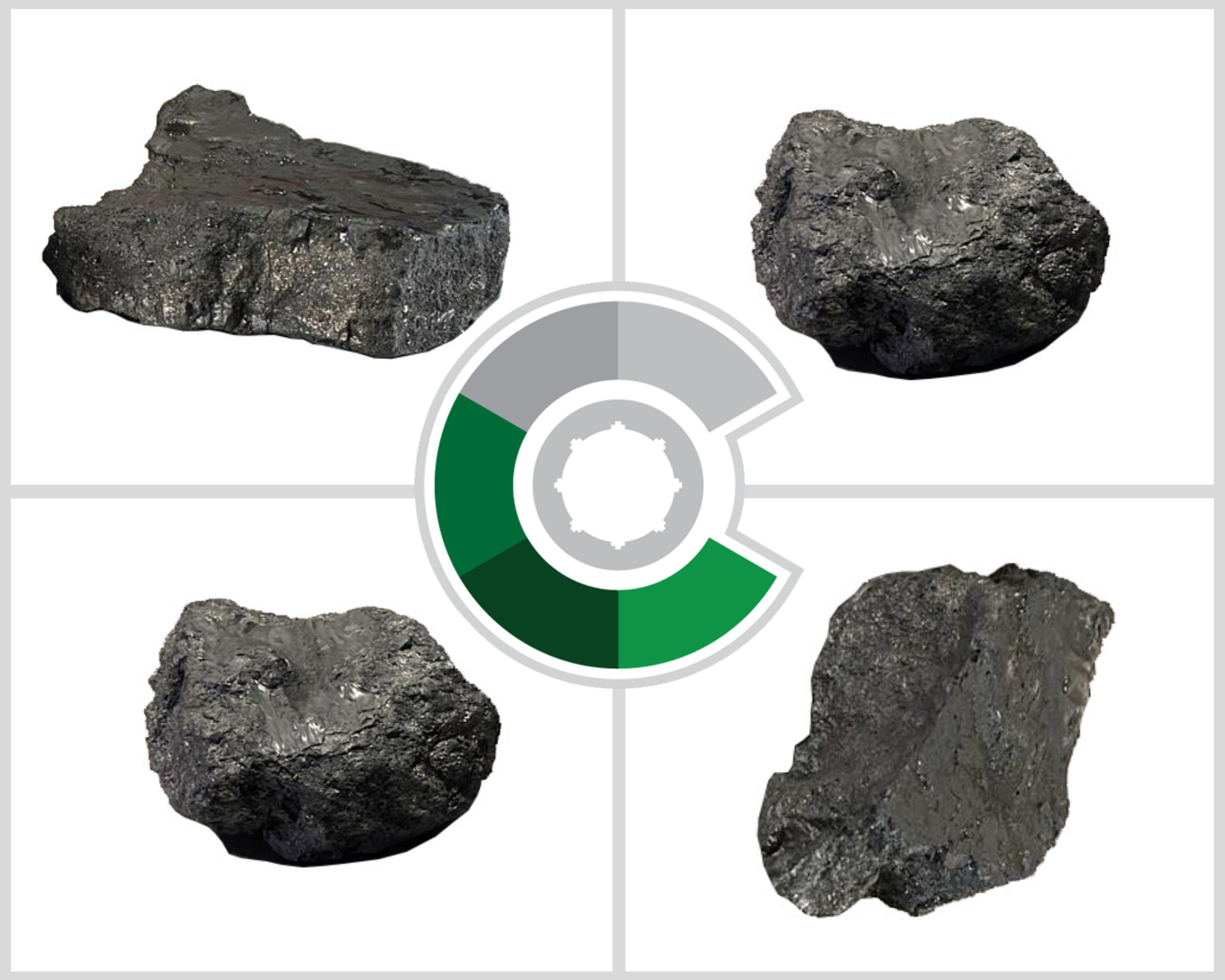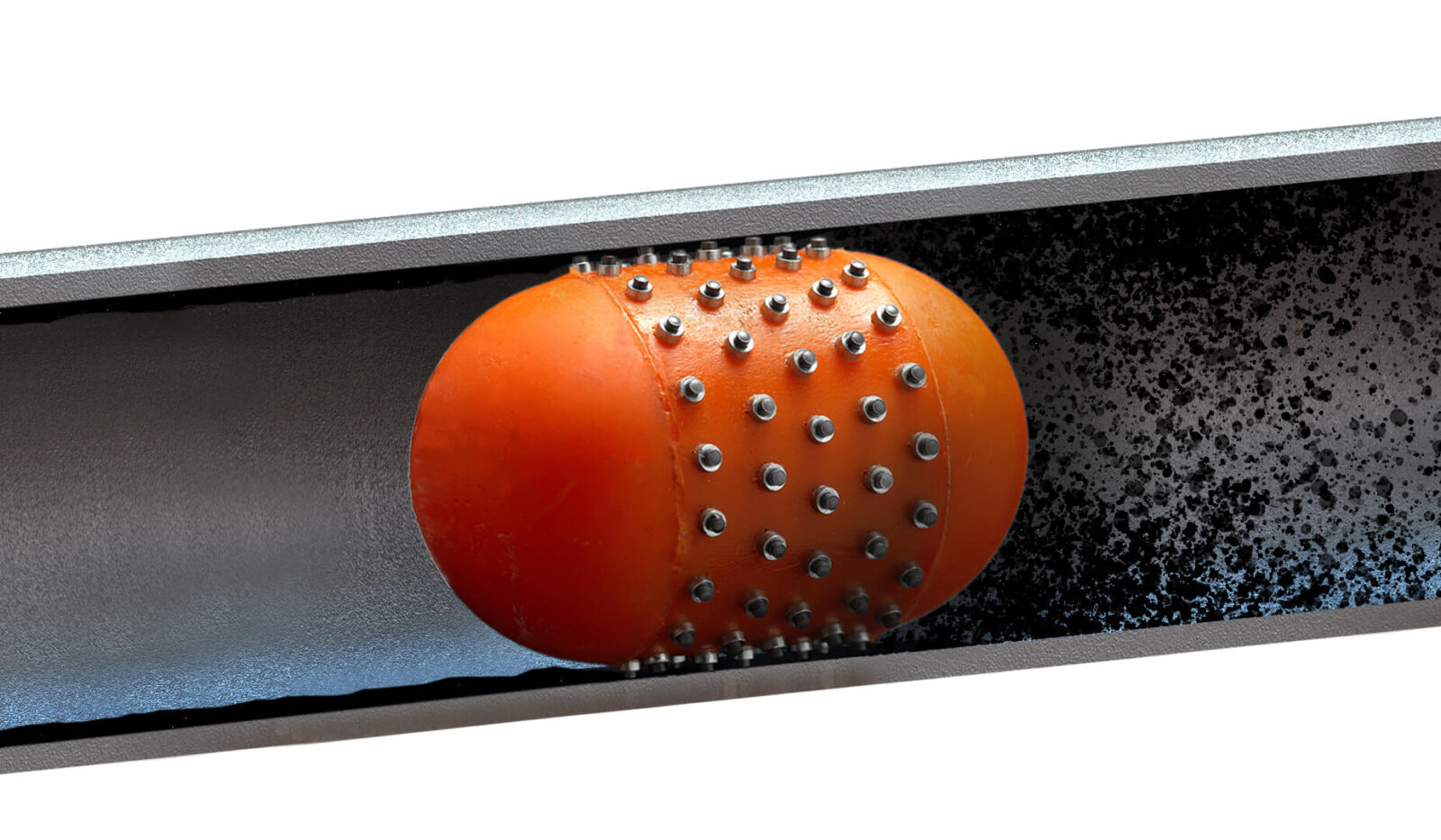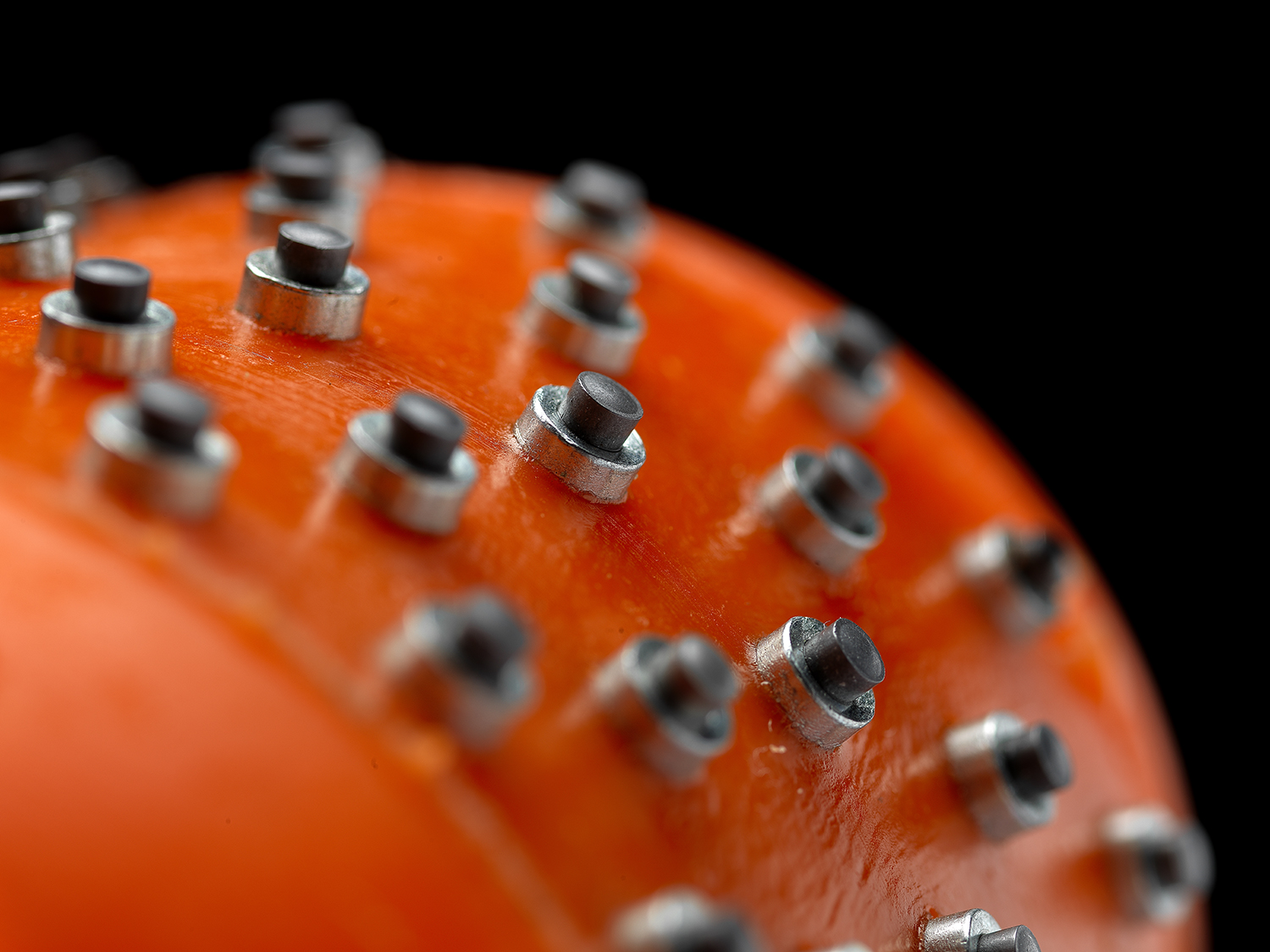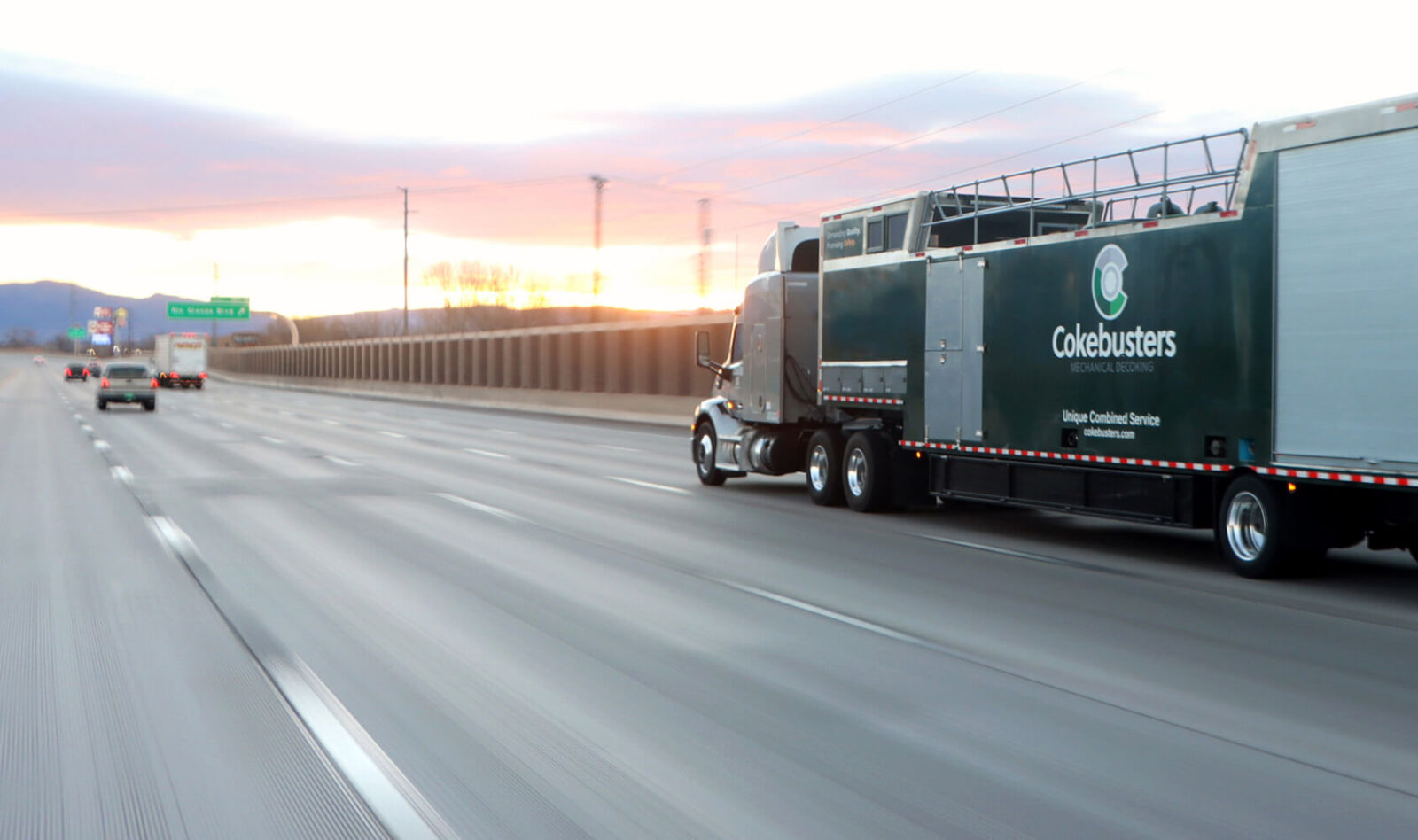How Mechanical Cleaning Improves Energy Efficiency in Refineries
24 October 2024
Refineries operate under extreme conditions, processing vast amounts of crude oil and other hydrocarbons at high temperatures and pressures. Over time, coke deposits – carbon-rich, hard substances – build up on the inner walls of furnace and heat exchanger tubes, severely impacting performance. These deposits not only decrease the efficiency of heat transfer but also increase fuel consumption, putting more strain on operations and driving up costs. To address this, refineries rely on mechanical decoking to remove these deposits and restore optimal operating conditions.
In this article, we’ll explore how mechanical decoking significantly improves energy efficiency in refineries by enhancing heat transfer and reducing fuel consumption.
The Impact of Coke Deposits on Refinery Operations
Coke deposits form as a byproduct of cracking hydrocarbons under high temperatures, which is common in refinery processes such as distillation and cracking units. These deposits accumulate inside the tubes of heaters and heat exchangers, leading to several issues:
1. Reduced Heat Transfer Efficiency: Coke acts as an insulating barrier inside the tubes. It reduces the ability of the tubes to transfer heat efficiently, forcing refineries to burn more fuel to maintain the necessary process temperatures.
2. Increased Fuel Consumption: As heat transfer becomes less efficient, refineries must consume more fuel to compensate for the loss. This leads to higher energy costs and increased emissions.
3. Accelerated Tube Wear: Coke buildup creates additional pressure on the equipment, leading to higher operational stress. This can accelerate tube degradation, causing frequent maintenance, reduced equipment life, and even unplanned shutdowns.
4. Reduced Throughput: As efficiency declines, refineries are often forced to reduce throughput to prevent damage to equipment, which negatively affects overall production and profitability.
Given these challenges, mechanical decoking is essential for restoring efficiency and keeping operations running smoothly.
What is Mechanical Decoking?
Mechanical decoking is a process used to remove coke deposits from the interior of tubes in heat exchangers, fired heaters, and furnaces. Unlike chemical cleaning methods, mechanical decoking involves using specialised tools that physically scrape or blast away coke deposits without damaging the tubes.
The Cokebusters method involves using our bespoke Double Pumping Units to drive our patented scraper pigs through the tubes using water pressure. As these mechanical pigs travel they break apart and remove the carbon deposits lining the tube wall. Most coke is recovered as fines, but every once in a while the process removes large clumps of coke as shown in the image below. This non-destructive cleaning process is fast, efficient and restores equipment to its peak performance levels.

How Mechanical Decoking Enhances Heat Transfer
The primary benefit of mechanical decoking is the significant improvement in heat transfer efficiency. In refinery processes, tubes are essential for transferring heat between fluids, whether it’s for heating feedstock or cooling product streams. When coke builds up on the inner walls of these tubes, it acts as an insulator, blocking heat from effectively reaching the desired fluid.
By removing coke deposits, mechanical decoking ensures that heat can once again flow freely through the tube walls. This improves the overall heat transfer coefficient, allowing refineries to achieve target process temperatures without burning excess fuel.
The Benefits of Enhanced Heat Transfer Include:
1. Lower Fuel Consumption: Clean tubes allow for more efficient heat transfer, meaning that less fuel is needed to achieve the same level of heating. This directly reduces fuel consumption, helping refineries lower energy costs and improve their bottom line.
2. Improved Process Efficiency: With better heat transfer, refineries can maintain optimal temperatures for processes like cracking and distillation, leading to higher throughput and better product quality.
3. Extended Equipment Life: When tubes are free from coke deposits, they operate under less stress, which extends their operational lifespan. This reduces the frequency of tube replacements and lowers overall maintenance costs.
How Mechanical Decoking Reduces Fuel Consumption
Energy consumption is a significant concern for refineries, both from a cost and environmental standpoint. When coke buildup interferes with heat transfer, more energy is required to maintain desired operating conditions. Mechanical decoking helps reduce this energy demand in the following ways:
1. Lower Heat Losses
When coke is present, much of the heat energy generated by combustion is wasted because it cannot effectively transfer through the tube walls to the process fluid. Mechanical decoking removes this barrier, enabling more efficient heat transfer and reducing the amount of energy lost as waste.
2. Optimised Combustion Efficiency
In furnaces and heaters, coke buildup forces operators to increase fuel input to reach target temperatures. After mechanical decoking, the tubes can more efficiently transfer the available heat, meaning less fuel is needed to achieve the same result. This leads to a direct reduction in fuel consumption and operating costs.
3. Lower Emissions
Burning less fuel not only saves money but also reduces the refinery’s environmental footprint. Lower fuel consumption results in fewer greenhouse gas emissions, helping refineries meet increasingly stringent environmental regulations and sustainability goals.
The Connection Between Decoking and Energy Efficiency
Improving energy efficiency is a top priority for refineries looking to reduce costs and meet environmental goals. Mechanical decoking plays a critical role in achieving this by addressing one of the key factors that cause inefficiencies—coke buildup.
Mechanical decoking restores optimal heat transfer, ensuring that energy is used more effectively in refinery processes. This translates into:
1. Reduced Fuel Costs: With less energy wasted on overcoming coke-induced inefficiencies, refineries can lower their fuel consumption, cutting down on one of the largest operational expenses.
2. Improved Production Capacity: When equipment operates efficiently, refineries can maintain or increase throughput without needing additional fuel inputs, enhancing overall productivity.
3. Sustainability Gains: By reducing energy consumption and emissions, refineries contribute to a cleaner environment and align themselves with global sustainability trends.
Key Advantages of Mechanical Decoking for Refineries
Mechanical decoking is an essential maintenance process that provides several benefits to refineries:
1. Energy Efficiency: Enhanced heat transfer and reduced fuel consumption lead to significant improvements in energy efficiency.
2. Cost Savings: Lower fuel usage, fewer shutdowns, and extended tube life reduce operating costs.
3. Sustainability: By consuming less energy and producing fewer emissions, refineries improve their environmental performance and comply with regulations.
4. Operational Stability: Regular mechanical decoking helps prevent unplanned outages, allowing refineries to operate consistently at optimal levels.
5. Improved Safety: Clean tubes reduce the risk of overheating or pressure-related failures, enhancing overall plant safety.
Conclusion
Mechanical decoking is a crucial step in maintaining energy efficiency in refineries. By removing coke deposits from the inner walls of tubes, refineries can restore heat transfer efficiency, lower fuel consumption, and extend the lifespan of critical equipment. This proactive maintenance process not only reduces costs but also improves the environmental impact of refinery operations.
As the energy landscape continues to evolve, refineries that prioritise energy efficiency through mechanical decoking will position themselves for long-term success, reducing operational costs while meeting sustainability goals.
Looking to improve your refinery’s energy efficiency? Contact us today to learn how our mechanical decoking services can help you reduce fuel consumption, lower emissions and optimise your operations.




